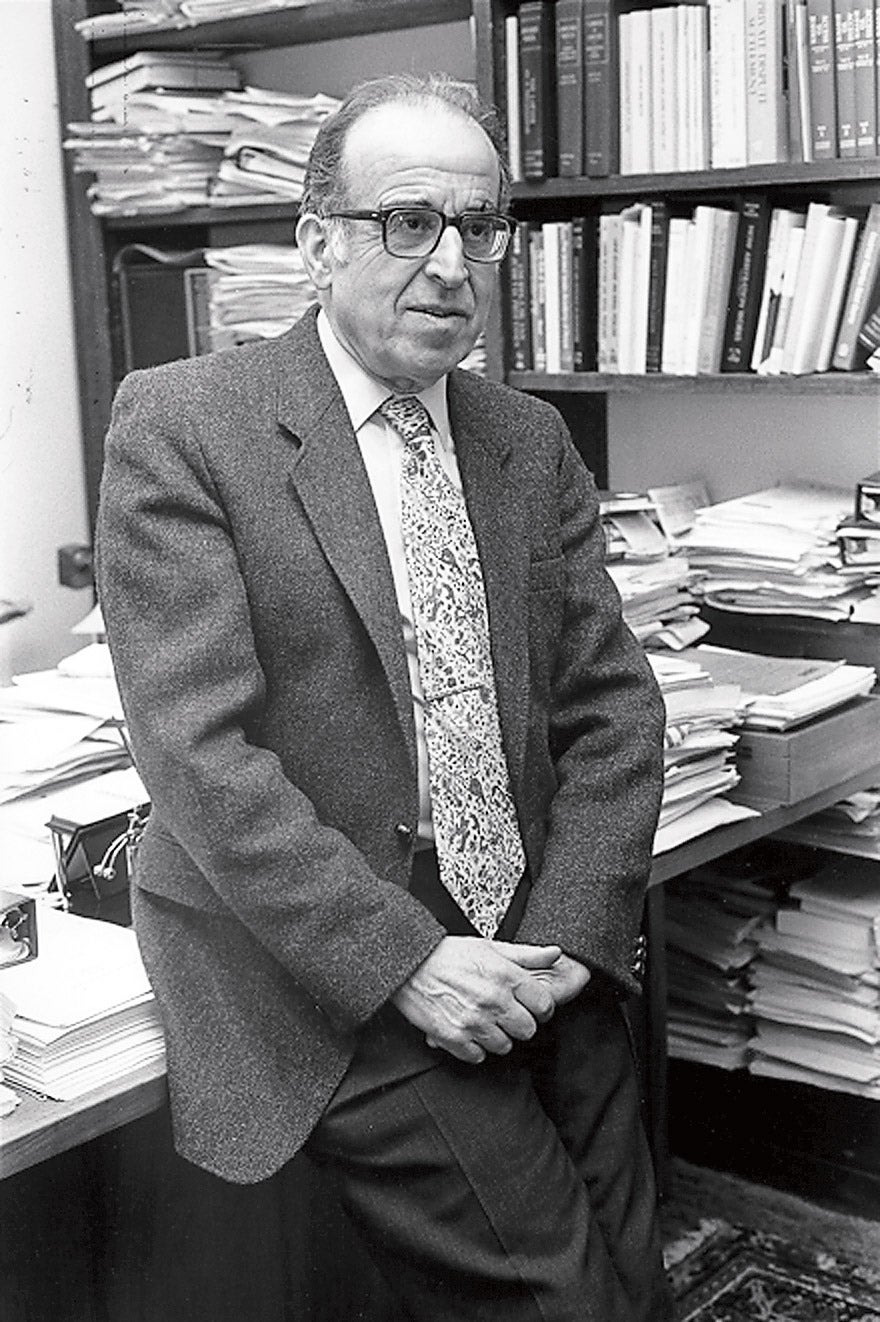An undisputed pioneer
By Robert C. Bordone ’97

Credit: Martha Stewart
When I first began to work with Frank Sander ’52 as a 3L at Harvard Law School in 1997, I realized that when it came to finding a mentor in alternative dispute resolution, I had struck gold. During the past decade, I have come to admire and respect him as a scholar of titanic proportions, as a noble and revered leader of HLS and—most important to me—as a generous and kind colleague and friend.
Without his huge scholarly contributions, it is hard to imagine what my law school education would have been like. Thanks in large part to Frank’s work, ADR, mediation and negotiation have become standard course offerings at not only Harvard but also virtually every other law school in the U.S. Along with several others, including HLS Professor Emeritus Roger Fisher [’48], Frank was responsible for laying the intellectual groundwork for this new subdiscipline of the law, which has since grown enormously.
Dispute resolution academics regard Frank’s speech “Varieties of Dispute Processing,” delivered at the 1976 Pound Conference convened by Chief Justice Burger, as the official birth of the modern ADR movement. Frank boldly imagined a court system that would function as a diagnostic gatekeeper for parties, directing them to the dispute resolution process (mediation, negotiation, litigation, arbitration or some combination of these) best suited for their own disputes.
Since then, Frank’s work has continued to break new ground. His 1994 article, “Fitting the Forum to the Fuss,” remains among the most frequently cited ADR pieces. This year, he outlined a proposal for a Mediation Receptivity Index that promises to have an impact for years to come. In between, he has written dozens of articles as well as the casebook he co-wrote, “Dispute Resolution: Negotiation, Mediation, and Other Processes,” now in its fourth edition. He has also received nearly every honor available in our field.
Frank’s legal career started long before his first contributions to ADR. After graduating from law school, he clerked for Judge Calvert Magruder [’16] of the U.S. Court of Appeals for the 1st Circuit and then for Justice Felix Frankfurter [LL.B. 1906] of the U.S. Supreme Court during the term when Brown v. Board of Education was decided. He put in brief stints at the U.S. Department of Justice and the Boston firm of Hill & Barlow and then returned to the law school, where his scholarship and teaching focused on taxation and family law.
One might wonder how a tax and family law scholar could become the patriarch of ADR in the U.S. The answer lies in Frank’s ability to make connections across disciplines, and in the confidence and adventurous spirit that inspire him to step outside his comfort zone to try something new. I have often marveled at his willingness to try new methods for approaching sticky, persistent problems. Quite apart from his scholarship and mentorship, Frank has affected me through his example. His inquiring spirit, his deep humility and his constant regard for the dignity and uniqueness of those with whom he comes into contact—from deans to cafeteria workers—continue to inspire me. As I proceed with my own career, it is this extraordinary regard that I will most miss and that I will most attempt to emulate.
——————————————————————————————————————————–
Robert C. Bordone ’97 is the Thaddeus R. Beal Assistant Clinical Professor of Law at HLS and director of the HLS Negotiation and Mediation Clinical Program.
